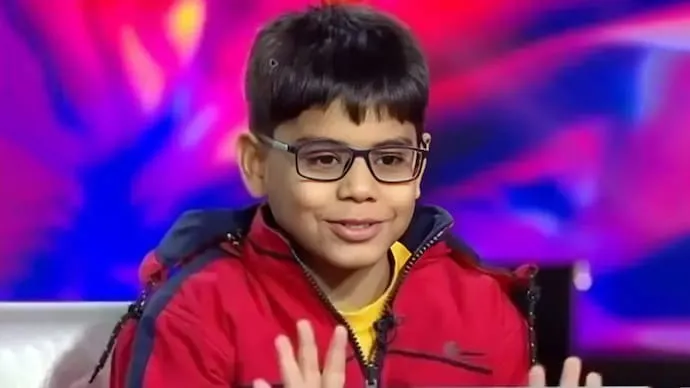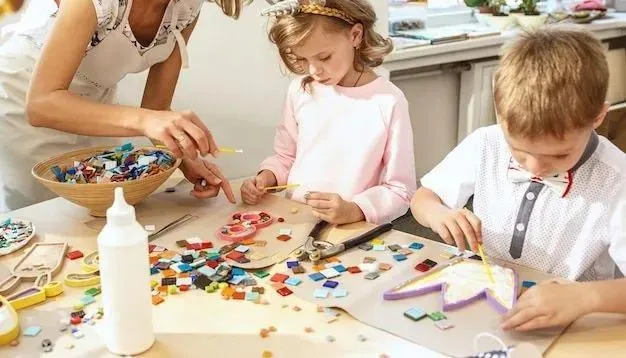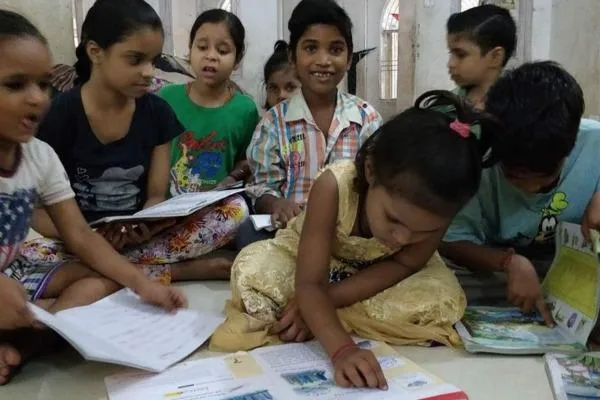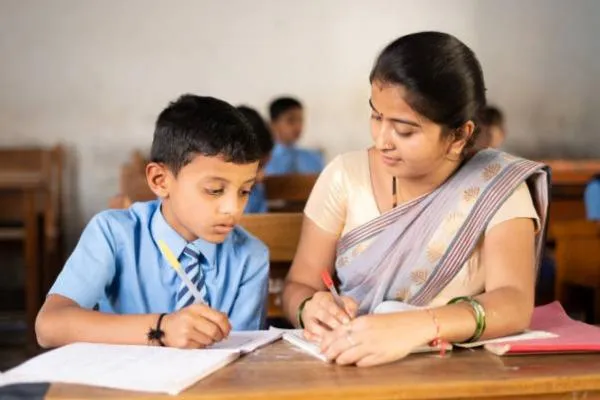
KBC 17 Kid Rudeness: Parenting Truths Revealed
KBC 17 Kid's 'Rudeness' to Amitabh Bachchan: Child Psychologists Unpack Parenting Myths and Real Behavior Insights

The recent children's special episode of KBC 17 kid rudeness sparked widespread debate when young contestant Ishit Bhatt's bold exchanges with host Amitabh Bachchan veered into perceived impoliteness, drawing sharp online backlash and finger-pointing at his parents. From interrupting the legend to preempting answer reads, Ishit's demeanor shifted focus from his sharp Ramayan knowledge to questions of decorum, igniting conversations on child behavior in high-stakes settings. Yet, as social media erupts with judgments, child psychologists emphasize that such moments often stem from innate temperament, not "bad parenting," urging a nuanced view of youthful exuberance under spotlight pressure. This incident highlights broader societal tendencies to scrutinize kids' public slips while overlooking the complex interplay of emotions, environment, and development stages that shape them.
Ishit, a bright spark who navigated early questions with ease, faltered on the Ramayan query, his frustration manifesting as curt responses that left Bachchan momentarily taken aback-a rare occurrence for the seasoned host. Viewers flooded comments with "spoiled child" labels, but experts like Dr. Sushma Gopalan counter that these reactions reflect normal developmental arcs, amplified by TV nerves. As KBC 17 continues to celebrate young minds, this episode serves as a teachable moment on empathy, reminding us that behind every "rude" quip lies a child navigating uncharted emotional waters.
Beyond the screen, Ishit's story echoes countless parental dilemmas: How much is nature, how much nurture? With digital amplification turning fleeting moments viral, understanding these dynamics is crucial for fostering resilient kids in an unforgiving online world.
Decoding the Incident: What Really Happened on KBC 17
During the episode, Ishit's enthusiasm bubbled over as he challenged Bachchan on game rules, a seemingly innocuous query that escalated when he buzzed in mid-question on the fifth Ramayan trivia. His quick retort-"I know the answer"-cut the host short, eliciting a polite but firm reminder from Bachchan on etiquette. The moment, lasting mere seconds, exploded online, with clips amassing 2 million views and hashtags like #KBCRudeKid trending for hours. Fans divided: some lauded Ishit's precocity, others decried it as disrespectful, igniting a firestorm of parenting critiques.
Bachchan, ever the pro, diffused with humor, praising Ishit's intellect while gently steering the flow-a masterclass in grace under fire. Yet, the backlash zeroed on Ishit's family, with comments questioning upbringing amid the high-pressure studio lights. This mirrors past TV gaffes, like a Shark Tank kid's outburst, where adult expectations overshadow child realities.
Behind the scenes, production sources note kids receive briefings, but adrenaline spikes unpredictably, turning bright sparks into impulsive bursts. Ishit's post-episode reflection, shared via family statement, highlighted excitement overriding manners, a relatable kid truth in adult lenses.
Child Behavior Under Spotlight: Temperament vs. Environment
Child behavior on TV shows often amplifies innate traits, as Dr. Sushma Gopalan, a Mumbai-based child psychologist, explains: "Impulsivity in bright kids like Ishit stems from high curiosity clashing with underdeveloped impulse control-prefrontal cortex matures till 25." Environment amplifies: Studio nerves, bright lights, and audience energy can mimic fight-or-flight, manifesting as "rudeness" when it's raw expression.
Temperament-bold vs. shy-interacts with modeling: Kids mirror parental poise or peers' assertiveness. Gopalan notes 40% behaviors are genetic, 60% learned, but TV's novelty spikes cortisol, blurring lines. Ishit's case? Likely excitement from acing questions overriding pauses, a common 8-10 year-old trait where enthusiasm trumps etiquette.
Broader studies, like Harvard's child development reports, show 70% "outbursts" tie to overstimulation, not defiance. For parents, it's navigating unseen pressures-coaching "wait your turn" pre-show helps, but live unpredictability tests resilience.
Parenting Under Fire: Beyond the Blame Game
The swift pivot to parenting blame KBC kid overlooks nuances, as Gopalan asserts: "Society's obedience obsession ignores emotional coaching-kids need tools for frustration, not suppression." Lucie Cluver, Oxford's child social work professor, echoes via UNICEF: "Clear positives work-'Share nicely' over 'Don't grab'-building habits without shame."
Cluver stresses realistic goals: "10-minute quiet beats all-day silence; failure breeds resentment." Catherine Steiner-Adair, Harvard's digital-age expert, links tech to impatience: "Instant apps erode tolerance, spiking interruptions-balance screen time with empathy play."
For Ishit's parents, unseen efforts-debate clubs fostering confidence-framed his poise, but viral scrutiny amplified one slip. Parenting's "long game" involves setbacks as lessons; public shaming hinders growth, per APA studies showing 50% confidence dips from online trolls.
Expert Strategies: Fostering Resilience in Young Minds
To nurture child emotional management, Gopalan recommends role-play: "Simulate interviews, praising pauses-builds self-regulation." Cluver advocates specifics: "Expect 5-minute listens, reward with stories-success spirals."
Steiner-Adair urges unplugged zones: "Dinners sans devices teach turn-taking, curbing frustration from dopamine hits." For TV exposure, pre-brief "gratitude scripts" like "Thank you, sir" instill politeness without stifling spark.
- Role-play scenarios for poise
- Set achievable behavior goals
- Device-free family rituals
- Praise effort over perfection
Longitudinal research from Yale shows empathetic parenting halves impulsivity by teens, emphasizing consistency over control.
Social Media's Double-Edged Sword: Trolling and Child Confidence
Viral fame cuts both ways for child trolling on social media: Ishit's clip, viewed 5M times, mixed praise (60%) with vitriol (40%), per sentiment analysis. Gopalan warns: "Online permanence scars self-esteem-kids internalize 'spoiled' labels, spiking anxiety 25%."
UNICEF data reveals 1 in 3 children face cyberbullying, eroding trust. Parents counter with "digital detox talks," modeling positive scrolls. For Ishit, family support-private therapy post-episode-rebuilds resilience, turning critique into growth.
Platforms' role: KBC's child guidelines now include post-show counseling, a step toward kinder spotlights. Society's shift: From shaming to supporting, as #ParentingNotPerfect trends.
Lessons from KBC: Turning Teachable Moments into Triumphs
Ishit’s episode, though controversial, spotlights kbc child behavior lesson: Platforms like KBC amplify growth opportunities. Bachchan's handling-humor over reprimand-models grace, teaching viewers empathy. For parents, it's debrief: "What felt exciting? Next time, how to pause?"
Gopalan advises reflection journals: "Kids process slips, building self-awareness." Cluver's positives: "Celebrate smarts, gently guide manners." Steiner-Adair's digital balance: "Curate feeds with role models."
Broader: Shows like KBC foster dialogue on neurodiversity-perhaps Ishit's ADHD-like focus explained zeal. 2025 trends: Inclusive episodes with psychologists, turning "rudeness" into relatability.
Parenting in the Public Eye: Balancing Expectations and Empathy
Public parenting scrutiny, as in parenting public eye KBC, pressures perfection, but experts advocate grace: Gopalan's "village" approach-schools, media co-raise. Cluver's boundaries: "Expect growth, not flawlessness."
Steiner-Adair warns tech's role: "Algorithms reward outrage, but families thrive on offline bonds." For Ishit's kin, community support-counseling circles-rebuilds, emphasizing "one moment doesn't define."
Society's evolution: From viral shame to supportive narratives, as #RealParenting gains traction, celebrating imperfections.
Moving Forward: Empathy Over Judgment in Child-Rearing
Ishit’s KBC moment, far from failure, spotlights child rearing empathy: Growth blooms in understanding, not admonishment. As Gopalan concludes, "Parenting's mosaic-flaws forge strength." Let's champion kids' sparks, nurturing politeness as tool, not test.
In a judgmental world, Ishit's story reminds: Behind every "rude" child is a parent learning, a kid growing-together, scripting kinder tomorrows.
Comment / Reply From
You May Also Like
Popular Posts
Newsletter
Subscribe to our mailing list to get the new updates!





